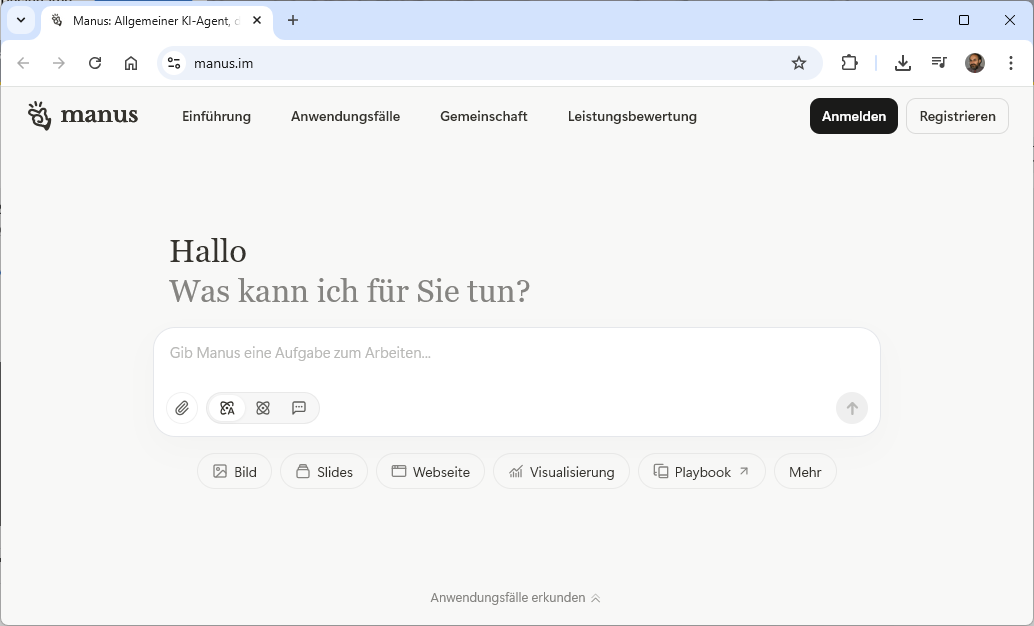Archive for the ‘AI’ Category
Microsoft Project Ire – is an LLM powered autonomous malware classification system
Dienstag, August 12th, 2025OpenAI GPT-5 ‚gpt-oss-20b‘ – new model can’t believe that Trump is back in office
Samstag, August 9th, 2025… with the online version of OpenAI GPT-5 it works

Articulate 360 – crecate course content up to 9x faster with integrated AI
Freitag, August 8th, 2025OpenAI GPT-5 – saving medical researchers time and pushing the frontier of science
Freitag, August 8th, 2025OpenAI GPT-5 – our best model for work
Donnerstag, August 7th, 2025Ollama UI – exploring OpenAI open weight model GPT-OSS designed for powerful reasoning agentic tasks and versatile developer use cases
Mittwoch, August 6th, 2025Ollama UI – it’s a game changer for local AI
Sonntag, August 3rd, 2025Microsoft Internal Memo – ‚Using AI Is No Longer Optional‘
Samstag, August 2nd, 2025Ollama UI – it’s a game changer for local AI
Samstag, August 2nd, 2025Manus AI – is a general AI agent that turns your thoughts into actions it excels at various tasks in work and life getting everything done while you rest
Montag, Juli 28th, 2025Paperless NGX – eine lokale KI für Unternehmen statt eine weitentfernte KI wie z.B.: ChatGPT
Montag, Juli 28th, 2025Äpfel & Birnen – was ist ‚BIAS‘ in KI und warum müssen wir etwas dagegen tun
Samstag, Juli 26th, 2025OpenAI CEO Sam Altman – has expressed concerns regarding the potential risks associated with granting the AI access to sensitive personal information
Mittwoch, Juli 23rd, 2025Today we launched a new product called ChatGPT Agent.
Agent represents a new level of capability for AI systems and can accomplish some remarkable, complex tasks for you using its own computer. It combines the spirit of Deep Research and Operator, but is more powerful than that may sound—it can think for a long time, use some tools, think some more, take some actions, think some more, etc. For example, we showed a demo in our launch of preparing for a friend’s wedding: buying an outfit, booking travel, choosing a gift, etc. We also showed an example of analyzing data and creating a presentation for work.
Although the utility is significant, so are the potential risks.
We have built a lot of safeguards and warnings into it, and broader mitigations than we’ve ever developed before from robust training to system safeguards to user controls, but we can’t anticipate everything. In the spirit of iterative deployment, we are going to warn users heavily and give users freedom to take actions carefully if they want to.
I would explain this to my own family as cutting edge and experimental; a chance to try the future, but not something I’d yet use for high-stakes uses or with a lot of personal information until we have a chance to study and improve it in the wild.
We don’t know exactly what the impacts are going to be, but bad actors may try to “trick” users’ AI agents into giving private information they shouldn’t and take actions they shouldn’t, in ways we can’t predict. We recommend giving agents the minimum access required to complete a task to reduce privacy and security risks.
For example, I can give Agent access to my calendar to find a time that works for a group dinner. But I don’t need to give it any access if I’m just asking it to buy me some clothes.
There is more risk in tasks like “Look at my emails that came in overnight and do whatever you need to do to address them, don’t ask any follow up questions”. This could lead to untrusted content from a malicious email tricking the model into leaking your data.
We think it’s important to begin learning from contact with reality, and that people adopt these tools carefully and slowly as we better quantify and mitigate the potential risks involved. As with other new levels of capability, society, the technology, and the risk mitigation strategy will need to co-evolve.


